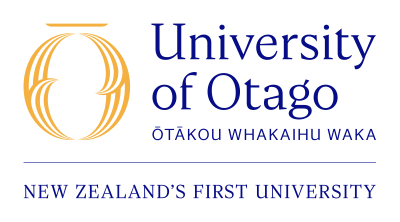
Master of Business (Mbus) in Finance
Dunedin, New Zealand
DURATION
1 Years
LANGUAGES
English
PACE
Full time
APPLICATION DEADLINE
Request application deadline
EARLIEST START DATE
Request earliest startdate
TUITION FEES
Request tuition fees
STUDY FORMAT
On-Campus
Introduction
Finance is a decision-oriented discipline that is complex, challenging and dynamic.
It’s about managing money and capital in the real world: making practical financial decisions that can add value to a business and the economy.
Finance focuses on investments (including portfolio theory); corporate finance (how businesses make internal financial decisions); derivatives (the study of financial securities deriving their value from other assets’ values); and international finance (finance across borders).
An understanding of Finance is essential to business, and Finance majors succeed in rewarding and highly-paid careers.
Why study Finance?
Every person and every organisation raises and spends money. Finance examines the theory and practice of this process, with particular attention to the measurement and management of risk. It's about deciding how money is allocated in the real world.
Finance is both a science and an art – a science because it systematically analyses information and uses it to make and test
predictions; an art because these activities are not exact and there is frequently no “right” answer.
Finance deals not only with the measurable, “quantitative” aspects but also with the unmeasurable, in which intuition and experience play a strong role. Skills in these areas are invaluable in the workplace.
Above all, Finance is exciting. You will often have to make swift decisions concerning large amounts of money and resources.
Curriculum
Finance is a major of the three-year Bachelor of Commerce degree programme and is taught within the Department of Accountancy and Finance.
Finance is very different from accountancy and economics. Finance is decision-oriented and focuses on how individuals allocate resources through time, either inside an organisation (e.g. corporate finance) or outside it (e.g. investments). Economics provides the intuition that guides financial decisions while accounting reports and monitors the results of financial decisions, as well as provides the information on which financial decisions are based.
Within the Finance degree, you will learn about components of the financial system and about the institutions and financial instruments that facilitate the transfer of funds between individuals, businesses and organisations.
The degree covers practical aspects such as the concepts of value creation, required rates of return, financial mathematics, capital budgeting, capital structure and dividend policies. You will also learn about fixed-income securities, options and futures, shares and simple techniques for hedging risk, portfolio diversification and portfolio evaluation.
As you progress through the degree, and perhaps into postgraduate study, you will have the opportunity to specialise in those areas of finance that particularly interest you.
Teaching style
Finance is taught in lectures and tutorials. You may be asked to write individual essays and reports, work on cases, complete group project work, give presentations and sit exams.
Double major/degree options
Many subject areas complement finance and will strengthen your degree, including Accounting, Business Law, Economics, Mathematics, Statistics, Law and Information Science.
Minor Subject Requirements
- FINC102 Business Mathematics
- FINC202 Investment Analysis and Portfolio Management
- FINC203 Financial Data Analysis
- FINC204 Personal Finance
- FINC206 Fundamentals of Corporate Finance
- FINC302 Applied Investments
- FINC303 Financial Management
- FINC305 International Financial Management
- FINC306 Derivatives
- FINC308 Financial Econometrics
- FINC320 Sustainable Investing
- FINC402 Advanced Corporate Finance
- FINC403 Studies in Capital Markets
- FINC405 Mathematical Finance
- FINC406 Advanced Financial Econometrics
- FINC425 Governance Issues in Finance
- FINC444 Behavioural Finance
- FINC501 Applied Project
- FINC580 Research Project
Career Opportunities
The range of careers in finance is wide varied, and well-paid. Graduates work in planning and budgeting, portfolio management, investments, securities, trading, risk management and foreign currency trading. They are employed by government departments, the education sector, banks, insurance companies, investment banks, accounting firms, stockbroking firms and many others. Because a Finance degree is relevant to economic structures worldwide, it is highly exportable. There are many job opportunities overseas, and Otago graduates compete well in international markets.
